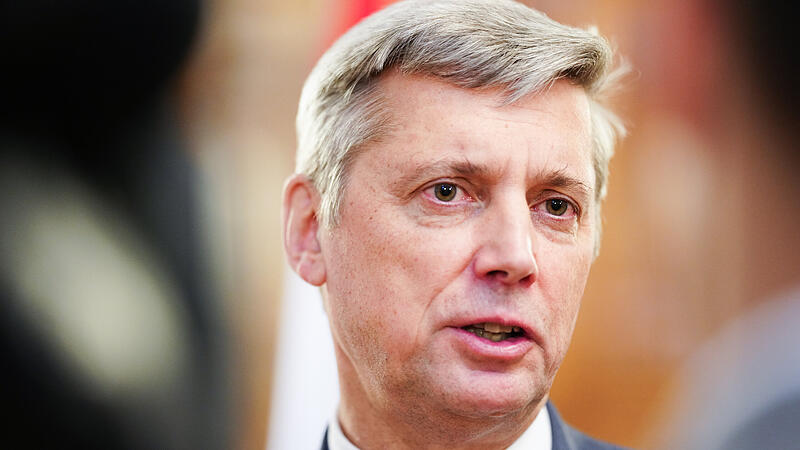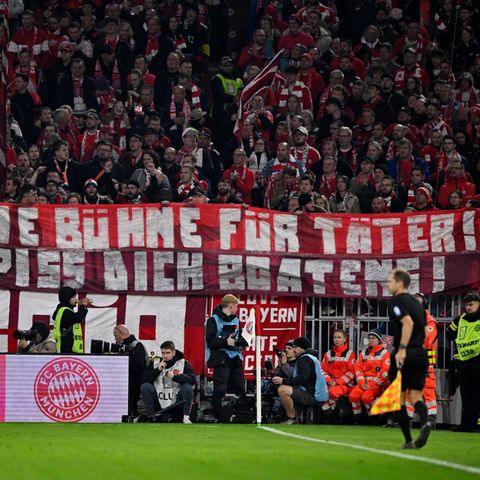Image: EVA MANHART (APA/EVA MANHART)
Justice Minister Alma Zadic (Greens) announced this at a press conference on Friday. The commission is supposed to analyze files and also conduct interviews. Their work is scheduled to be completed on May 31, 2024, and the final report will be presented on June 15 and subsequently published.
Pilnacek, once the most powerful man in the Ministry of Justice, can be heard on the secret recording during an evening gathering with acquaintances in a pub at the end of July, saying that the ÖVP had demanded that he stop investigations and stop house searches, all of which he had always fended off. He mentioned by name, among others, National Council President Wolfgang Sobotka (ÖVP).
Influencing the judiciary?
The commission is supposed to clarify, for example, whether there was any influence on public prosecutor’s proceedings from January 1, 2010 to the present day. The starting point was roughly when Pilnacek took office as section head (autumn 2010). It is also being investigated whether there have been interventions by political parties in the administration of justice.
- More on the subject: Pilnacek case – More questions than answers
Specifically, the mandate is to “select public prosecutor’s cases, including related files from the bodies entrusted with supervision, for the period from January 1, 2010 to December 1, 2023, in which, based on specific circumstances, it can be assumed or is evident that a political party or an individual close to it or legal person had, has or could have an interest in a certain outcome or specific handling of the public prosecutor’s proceedings”. A similar formulation was chosen with regard to the administration of justice.
Interviews and file analysis
Kreutner and Zadic made it clear that the commission would not duplicate the work of the public prosecutor’s office, which was also investigating. “We are not the senior public prosecutor or the senior authority,” said Kreutner. Specifically, files will be requested, including those that were relevant in the U-committees. Based on this, questionnaires will be developed and interviews will be conducted. People would be invited to this – although the commission has no way of actually summoning anyone. “We have no coercive powers.”
- More on the subject: End of the guesswork: who recorded the conversation with Pilnacek
There will also be the option to contact the Commission anonymously. For example, it should be determined whether there have been “abnormalities in behavior that are incompatible with today’s understanding of compliance.” It will not be possible to check all procedures since 2010, says Kreutner. That’s not the commission’s job – it’s more about identifying structural and systemic deficiencies. Recommendations will then be made based on this. The remaining five to six commission members will be appointed by December 15th. According to Kreutner, practitioners from public prosecutors and the judicial administration would also be appointed, and at least one member should come from the international department.
No right to give instructions from the minister
Zadic emphasized that he would not interfere in the work of the commission. She has no right to give instructions to the members. All necessary files and documents will be made available to the commission – since the commission was appointed by it, members of the judiciary would not be subject to official secrecy. Kreutner announced that, if necessary, there would also be the possibility of anonymizing certain statements for the final report.
The aim is to determine, for example, whether investigations have been hindered – although “interventions, when they take place, do not take place in such a way that someone says, you are not allowed to investigate that or you have to investigate this and that,” emphasized Kreutner. We will therefore also look at whether there is an excessive percentage of reporting obligations. “You can also paralyze a prosecutor by making him report three times a day.” Other international examples include the constant replacement of a secretariat or the failure to fill management positions.
- More on the subject: Tape: Pilnacek accused the ÖVP of interventions
Kreutner was formerly head of the Internal Affairs Office at the Interior Ministry. The Tyrolean also served as dean of the International Anti-Corruption Academy in Laxenburg (Lower Austria) and as a consultant for the United Nations, the Council of Europe, the OSCE, Transparency International and the World Bank. Most recently, he helped initiate the anti-corruption referendum.
Criticism of Kreutner
FPÖ General Secretary Christian Hafenecker expressed criticism of Kreutner at the top of the commission in a press release. He was brought into the ministry by former Interior Minister Ernst Strasser (ÖVP). “Someone who sat in Strasser’s cabinet at the time the ÖVP’s ‘deep state’ was established and was later supported by the People’s Party is, in my view, not suitable to investigate alleged ÖVP corruption.” Although the NEOS welcome the Commission, they are calling for further reforms. “Above all, we finally need an independent head of command in the judiciary: Instead of a minister, an independent federal prosecutor must be at the end of the chain of command,” said NEOS deputy club chairman Nikolaus Scherak.
My themes
For your saved topics were
new articles found.

info By clicking on the icon you can add the keyword to your topics.
info
By clicking on the icon you open your “my topics” page. They have of 15 keywords saved and would have to remove keywords.
info By clicking on the icon you can remove the keyword from your topics.
Add the topic to your topics.
Source: Nachrichten




